Cancer Survivor Support Networks and Community Building
In the wake of cancer, finding people who genuinely understand the path you’ve walked can be a profound source of comfort. As survivors, we all have faced the myriad of challenges that cancer sprinkles along our journey: the diagnosis, the treatment, the relentless uncertainty.
Yet, a beacon of hope exists when we connect with individuals sharing this treacherous voyage, our tribe. These connections often become our stronghold, where silence speaks volumes and words are rich with empathy.
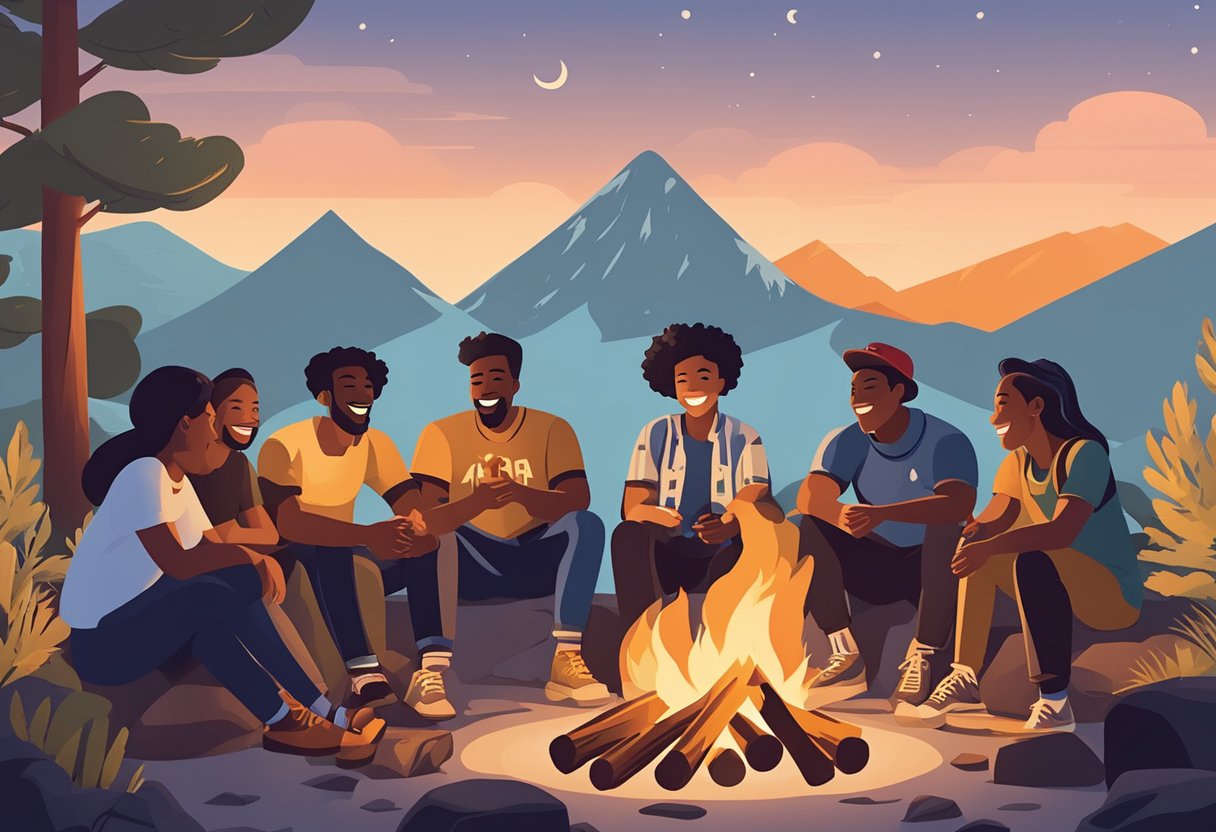
For us men who have braved the cancer odyssey, particularly those like me, twice humbled by lymphoma, seeking out this fellowship can prove elusive. Societal norms often nudge us towards stoicism, to shoulder our trials in isolation.
However, the power of shared struggle and collective resilience cannot be overstated. In finding our tribe, we see a reflection of our determination, a mirror to our optimism, and a collective wealth of knowledge on persevering and thriving beyond cancer.
Key Takeaways
- A strong community provides unmatched understanding and support.
- Shared experiences with other cancer survivors offer resilience and hope.
- Building connections fortifies our mental and emotional well-being post-cancer.
Understanding Cancer and Its Impacts
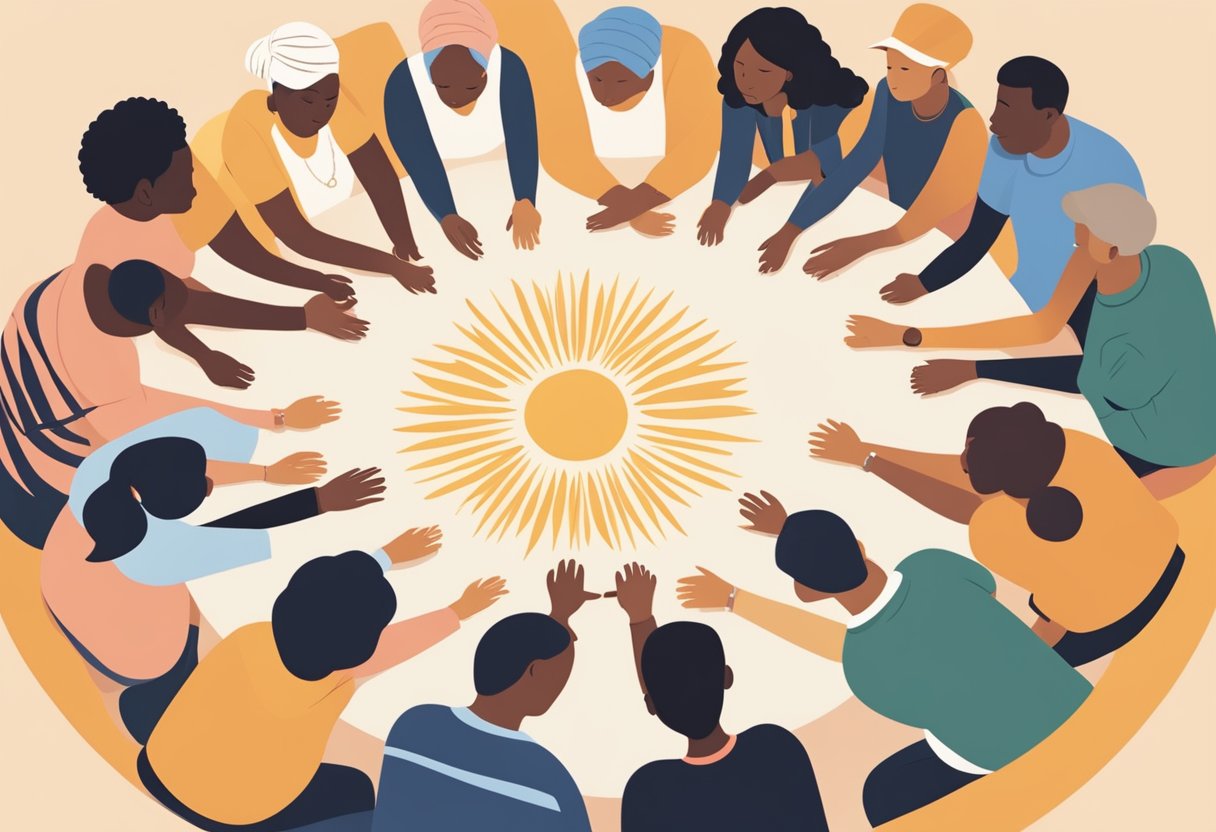
Cancer encompasses a collection of diseases where abnormal cells divide uncontrollably and can invade other tissues. A cancer diagnosis can feel like a storm disrupting life’s rhythm, bringing a cascade of emotional and physical challenges.
For us men, acknowledging vulnerability and seeking support often clash with societal expectations of stoicism.
Treatments vary based on cancer type and stage and may include surgery, chemotherapy, radiation, or targeted therapy. Each has side effects ranging from fatigue and pain to cognitive changes.
We brace ourselves for these as we commence the battle, knowing that the way ahead is challenging but necessary.
We also face late effects—those consequences surfacing months or years after treatment. These can manifest as heart problems, secondary cancers, or emotional scars that intertwine with our daily lives.
It’s a marathon, not a sprint, and every step forward matters.
Here’s a glance at what we might encounter:
- Symptoms: Lump formation, unexplained weight loss, or persistent tiredness
- Side Effects: Nausea, hair loss, and impact on fertility
- Long-Term Side Effects: Memory issues, persistent fatigue, or emotional distress
Staying informed and proactive about our health is how we regain control. As survivors, we unite through our shared experiences.
We foster resilience and lean on one another for insights and camaraderie. When one of us stumbles, we all reach out with a steady hand—because no one should face this journey alone.
Initial Steps Post-Diagnosis
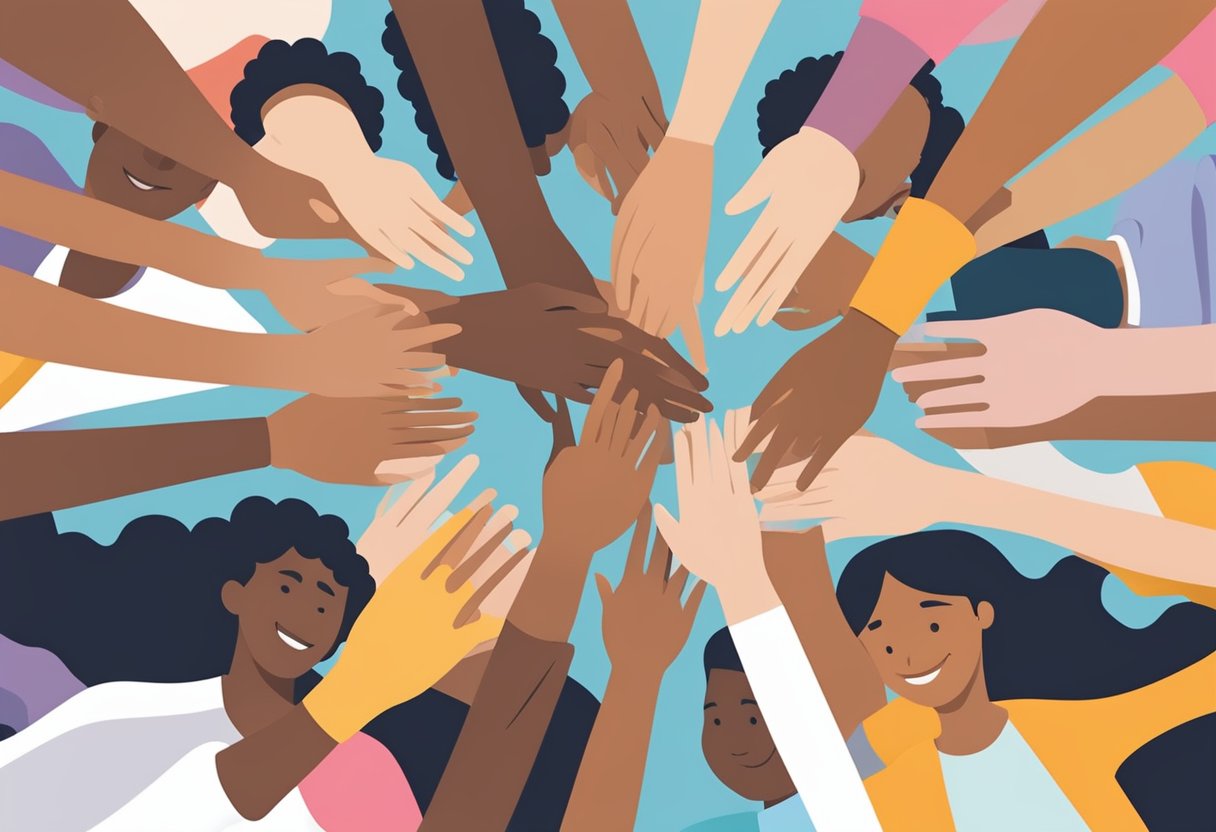
After we hear, “You’ve got cancer,” we face a whirlwind of emotions and questions. The priority is to create a path forward that encompasses selecting treatments and rallying a support network.
Navigating Treatment Options
Our next move is to sit down with our oncologist and examine the treatment plans laid out for us. These sessions forge a personalized roadmap for us to follow, as everyone’s battle with cancer is unique.
We must scrutinize the options, from surgery and radiation to chemotherapy and experimental trials. Bringing a family member or friend to these appointments can aid in capturing all the details and asking the right questions.
It’s a challenging game—we get one shot at crafting our attack strategy, and adjustments occur only based on how our body responds on the field.
Treatment Options:
- Surgery
- Chemotherapy
- Radiation Therapy
- Experimental Trials
Considerations:
- Side effects
- Success rates
- Hospital stays
Building Your Support Network
Building our support bench is like forming a sports team—each player brings unique strengths. Friends and family are our immediate teammates, offering a shoulder and stepping in when life throws a curveball. Support groups join our squad, too, serving as a league of fellow cancer fighters who understand the ins and outs of this adversary.
They’re a collective of wisdom, and as guys, we may hesitate to reach out, but these folks get it. They offer the playbook we need and stand with us every step of the way.
Together, we defend against cancer’s onslaught; our unity is our best defense.
- Key Teammates:
- Family: The home team that knows us best.
- Friends: Our loyal fans.
- Support Groups: Veterans of the disease with a wealth of knowledge.
Remember, no man is an island. Building this network isn’t just sensible; it’s our life raft in this fight.
The Role of Community in Survivorship
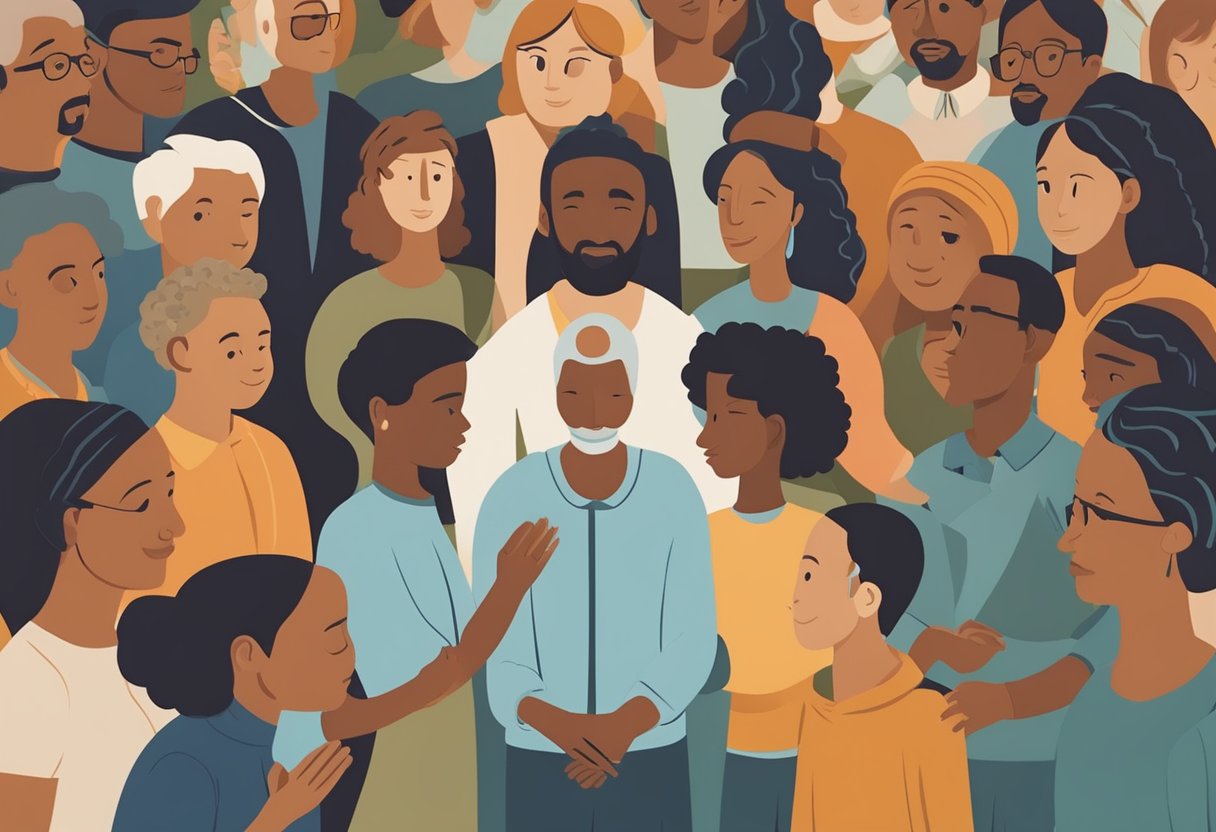
Survivorship thrives on connection and shared understanding, especially for us men who have battled cancer. Finding a community that resonates with our experience can transform our journey from isolation to common strength and mutual assistance.
Finding Your Tribe
For us survivors, locating our tribe means discovering peers who genuinely grasp the rigors we face. It’s a search for a network that can offer more than sympathy; we seek empathy, an intuitive understanding that comes when others also walk the path we tread.
During my journey through lymphoma twice, it became evident that the camaraderie of fellow survivors could often be a salve for the soul.
We build our tribe meticulously, sometimes through patient research or fortunate encounters, because not every group fits our unique needs or understands the nuances of our battles.
Unfortunately, aligning with a fitting tribe isn’t always straightforward. Dissimilar life schedules, varying disease outcomes, and geographical limitations can create barriers.
Therefore, we turn to diverse platforms, including social media and message boards, to cast a wider net, and thus, we bridge the physical divide. Through these channels, we encounter a spectrum of voices, advice, and, most importantly, solidarity.
The Power of Support Groups
Support groups serve as the bedrock for many of us striving for connection. They are our fortified enclaves where wisdom flourishes through shared stories and collective resilience emerges.
Through these groups, we discover coping strategies, learn about novel therapies, and even share laughter—often the best medicine.
The structure of these groups may vary, from regular meetups at local community centers to virtual forums where one can find companionship at any hour.
For us men, finding a group that specializes in our experiences enables us to address the layers within our survivorship, often overshadowed by the broader conversation.
As someone who has endured the trials of cancer, leading by example in these groups, offering insights and encouragement, I’ve seen firsthand how peer support can translate into tangible outcomes, including improved mental wellbeing and a reinforced zest for life.
By crafting spaces where we can be vulnerable yet strong, we provide each other with a unique type of support that fosters recovery and growth beyond the clinical environment. These support networks are a testament to our collective tenacity—through them, we thrive.
Adopting a Healthy Lifestyle
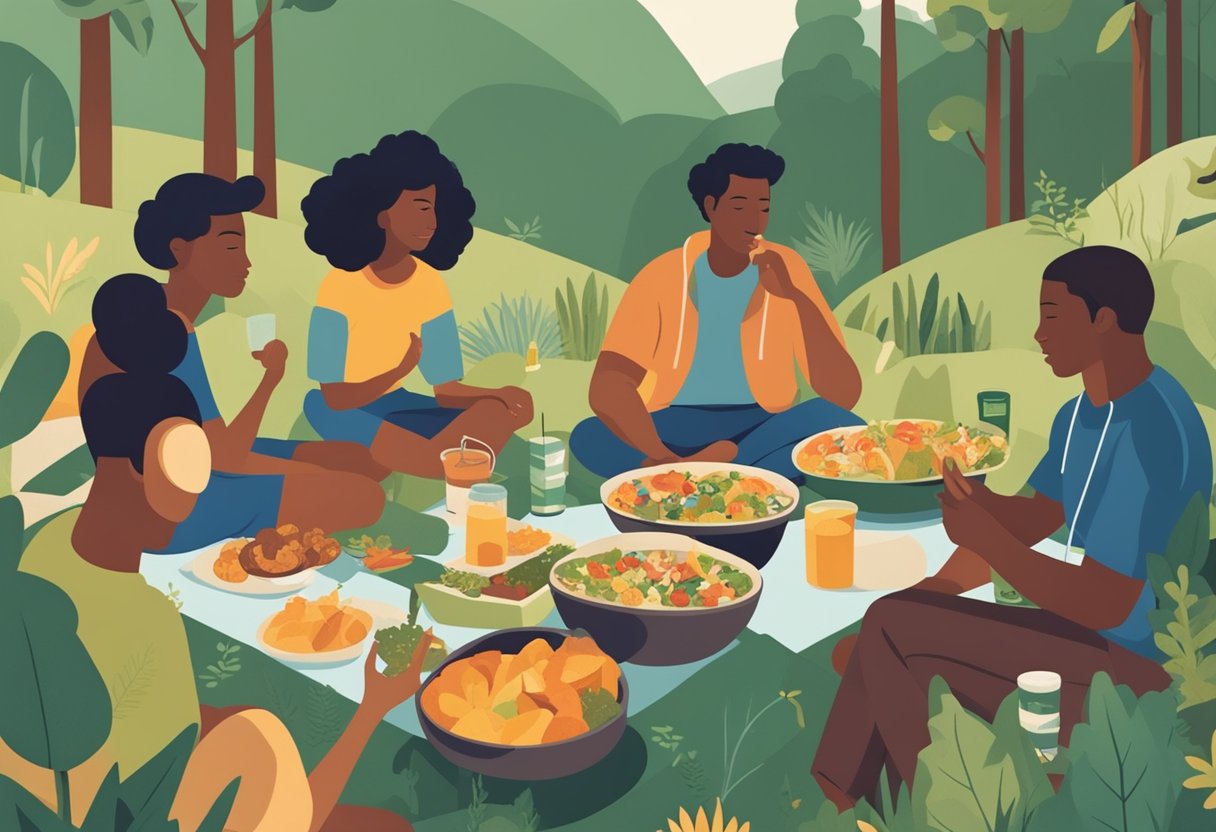
We often face a unique set of challenges after overcoming lymphoma. Still, by focusing on our wellbeing through targeted nutrition and exercise, we can steer towards a better quality of life.
Importance of Nutrition
Nutrition acts as fuel for our recovery journey. By choosing foods high in vitamins and antioxidants, we offer our bodies the tools for repair and strength.
Research from Nature underscores adopting a diet rich in fruits, vegetables, and whole grains, which can help us maintain a healthy weight and potentially lower the risk of a cancer comeback.
Let’s start by integrating colorful vegetables and lean proteins into our meals; they’re nutrient-dense and promote vitality and immunity.
- Vegetables: Aim for at least five servings per day. Think leafy greens, cruciferous veggies like broccoli, and vibrant peppers.
- Proteins: Include lean sources such as fish, chicken, and beans to aid tissue repair.
Exercise and Cancer Recovery
Regular exercise regimens are crucial for us, reinforcing our recovery and fostering resilience. Indeed, physical activity aids in feeling better and building and maintaining strength and coordination, as highlighted in the guide from the CDC.
A routine that includes daily movement can also manage stress and enhance our energy levels.
- Daily Movement: Incorporate moderate activities like walking, cycling, or swimming for at least 30 minutes daily.
- Strength Training: Use resistance exercises weekly to rebuild muscle mass and function.
Managing Mental Health and Emotional Well-Being
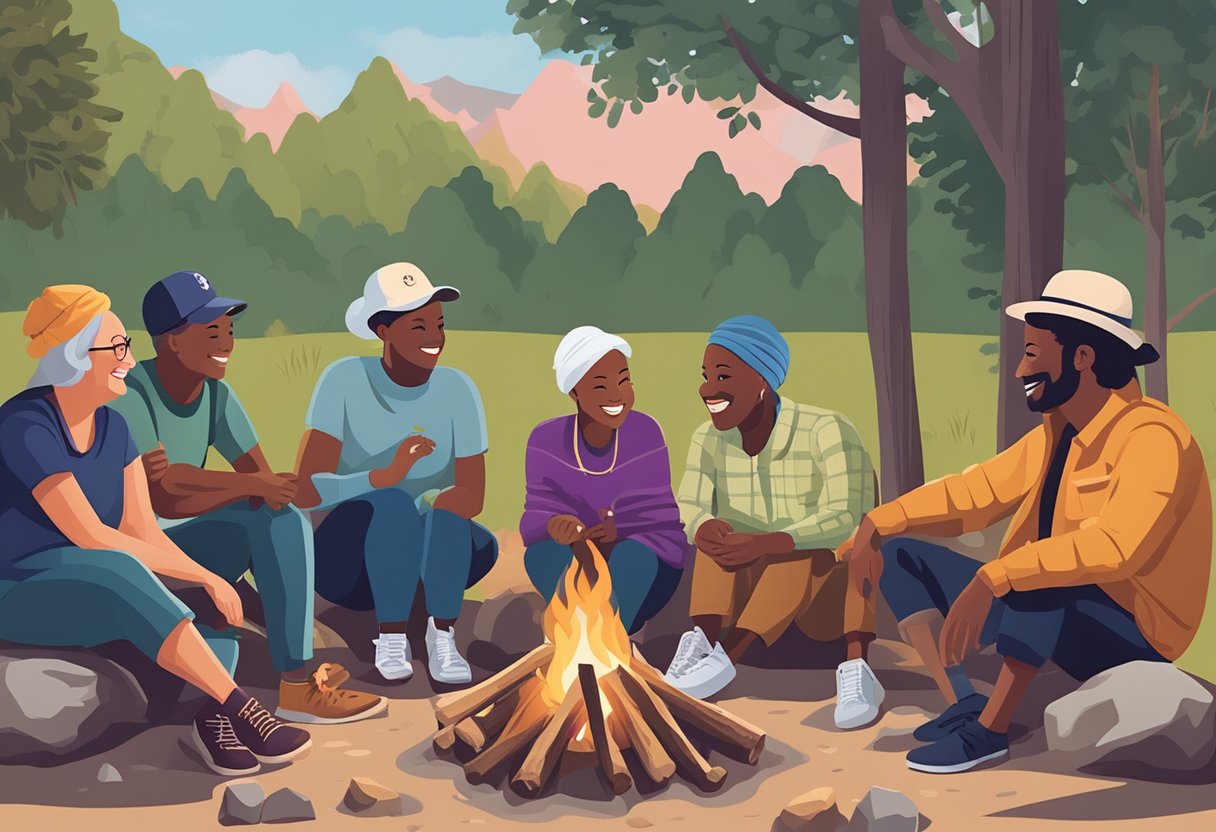
As survivors, we recognize that mental health is a vital part of our recovery journey. We must address emotional challenges head-on and seek professional support when necessary.
Coping with Emotional Challenges
For us, confronting the emotional turbulence after cancer is akin to navigating uncharted waters. Feelings of anxiety and fear of recurrence often surface, casting shadows on our daily lives.
Acknowledging these emotions is the first step. We must actively engage in stress-reducing practices such as:
- Exercise: Engaging in physical activities can boost our mood and combat stress.
- Connecting: Reaching out to fellow survivors can offer camaraderie and understanding.
Finding solace in shared experiences with other men who’ve faced similar battles can anchor us in rough seas. Yet, we sometimes struggle to express the depth of our emotions, making it challenging to forge these connections.
Professional Support and Therapy
Securing professional support can pave the way for a more resilient mindset. Therapy is not a sign of weakness but rather a strategy for strength.
Psychologists and mental health professionals can provide tailored treatment plans that might include:
- Individual Therapy: To directly confront our psychological hurdles.
- Group Therapy: Where we, alongside peers, can find strength in numbers.
Studies have highlighted that therapy can play a significant role in the clinical management of our emotions. Professional support becomes a cornerstone of managing temporary distress and fostering long-term psychological wellbeing
Let us not shy away from therapy. The right therapist can arm us with coping mechanisms specific to our needs, especially critical for alleviating depression and managing anxiety. As two-time lymphoma survivors, we’ve stood in the shoes of uncertainty, but therapy and support groups have been our lighthouses, guiding us back to serene shores.
Life After Cancer Treatment
Surviving cancer shapes our lives in profound ways, leaving us to navigate new challenges and opportunities as we move forward. Our journey through survivorship is marked by exploration and adjustment as we seek to improve our quality of life and grapple with complex feelings.
Navigating Survivorship
As survivors, we understand the mixed emotions that come post-treatment—relief intertwined with anxiety about the future. This is when we seek connection with others who have endured similar battles.
For us men who have fought lymphoma, a unique camaraderie forms when we share our stories and support one another. Yet, identifying a community where we truly belong can be taxing, as not everyone comprehends our journey toward a new normal.
- Establishing new routines: We focus on incorporating healthy habits that bolster our wellbeing, like regular exercise and balanced diets.
- Monitoring health: Regular follow-ups with our doctors ensure we remain in a state of no evidence of disease (NED), keeping a vigilant eye for signs of recurrence.
- Moving forward with hope: We channel our experiences into fuel for positive change in our lives and communities, embracing the hope that propels us.
Exploring Fertility and Intimacy Issues
The subject of fertility can be susceptible for us. Treatments might have impacted our ability to have children, forcing us to consider options like sperm banking before treatment or adoption afterward.
We actively seek solutions to preserve our chance at parenthood, should that be a path we wish to explore.
- Understanding fertility options: We investigate procedures such as sperm retrieval techniques and consult with fertility specialists.
- Addressing intimacy: We confront challenges in our intimate lives head-on, working to rebuild our confidence and finding ways to maintain healthy relationships.
Below is a list of potential fertility and intimacy options post-cancer treatment:
| Fertility Options | Description |
|---|---|
| Sperm Banking | Freezing sperm before treatment |
| Assisted Reproductive Tech | Using methods like IVF to conceive |
| Adoption | Exploring the process of adopting a child |
| Intimacy Solutions | Description |
|---|---|
| Open Communication | Talking with partners about our needs and concerns |
| Counseling | Seeking professional help to navigate emotional and physical aspects of intimacy |
| Physical Therapy | Engaging in recommended therapy to regain physical function |
Each of us has a one-of-a-kind path, and as we forge ahead, we do so with the mutual understanding and unwavering support that only survivors can offer. By focusing on these aspects of our lives, we strive to enhance our survivorship and craft a fulfilling existence post-treatment.
Becoming an Advocate and Staying Informed
We know the value of standing together in the fight against cancer. Our shared experiences drive us to become a beacon of support and information for our fellow men battling this illness.
Engaging in Cancer Research
We immerse ourselves in the latest studies and clinical trials, aware that progress in cancer research offers hope and the potential for breakthroughs.
Our involvement paves the way for new treatments and a deeper understanding of cancer dynamics. We track advancements and projects closely, sharing our insights with others and often partaking in studies ourselves when eligible.
Patient Advocacy and Community Involvement
We raise our voices for patient rights and better care, working closely with other survivors and organizations.
Community involvement brings us closer, helping us forge alliances and ignite change.
We educate our peers, shed light on the latest educational resources, and contribute to the rise in awareness and accessible support.
Each action and each word we speak kindles a collective strength, guiding us toward a future where we stand firm in knowledge and unity.
Final Thoughts
We often seek those who share our battles and victories in our quest for connection. For us, survivors of lymphoma, this bond is a beacon during storms of uncertainty. Lymphoma, with its arduous journey, symbolizes a shared fight unique to us as men. We are comrades in resilience.
Our thriver mindset is not just about survival but thriving beyond cancer. Yet, finding our tribe isn’t always straightforward. The path is sometimes lonesome as we wade through a sea of experiences, seeking peers who genuinely grasp the weight of our endurance.
- Expect to encounter hurdles as you search for your tribe:
- Limited understanding from those not on this path
- Scarcity of resources specific to our kind of survivorship
- Emotional walls that hinder the formation of new bonds
Remember, a solution resides in every challenge. Engage in activities like support groups or sports clubs that resonate with our history.
We discover allies who speak our language and cheer on our daily triumphs through these avenues.
We are champions, and we find strength in our pursuit of togetherness. Let us lace up our boots, ready for new leagues that welcome our spirit. Together, we celebrate each milestone, aware that our unity is our power and wisdom, a lantern for future thrivers.
Our experiences mold us into mentors, ready to guide with a steady hand. We are not just survivors but thrivers who lift each other to heights of hope and courage. Let this be our legacy: a community where we find solace, understanding, and unwavering companionship. -T
Frequently Asked Questions
As survivors of lymphoma cancer, we know the journey is challenging and that every victory counts. Now, let’s tackle some of the most pressing questions post-recovery.
What are the best ways to find a support group for cancer survivors?
We look for groups where we can share our stories and listen to others. Hospitals, cancer organizations, and online platforms provide spaces where we can connect with fellow survivors who relate to our struggles and triumphs.
In what ways does life change after successfully battling cancer?
Surviving cancer reshapes our view on life; we often appreciate each day more and may adjust our priorities. Some of us might take on new hobbies or join sports groups to celebrate our health and connect with individuals who share our zest for living fully.
Is it common to eventually feel normal again following cancer treatment?
Yes, we can regain a sense of normalcy. With time, community support, and self-care, we can integrate our cancer experience into life without it defining us.
What are some of the survival stories for stage 4 cancer patients?
Every survivor has a unique story that can inspire. Some individuals engage in athletics to overcome their experiences, while others may find solace in becoming advocates or mentors within the cancer community.
How can a cancer survivor build a new community of support?
We can start new chapters by joining team sports, attending community events, or volunteering. These activities offer camaraderie and also strengthen our sense of purpose and belonging.
What resources are available to connect with fellow cancer survivors?
Numerous resources exist. For example, the Q&A Series with the OCS Director provides insights into survivorship. Meanwhile, the Survivorship Navigation at UC Davis Comprehensive Cancer Center offers a range of supports, including nurse navigators.
